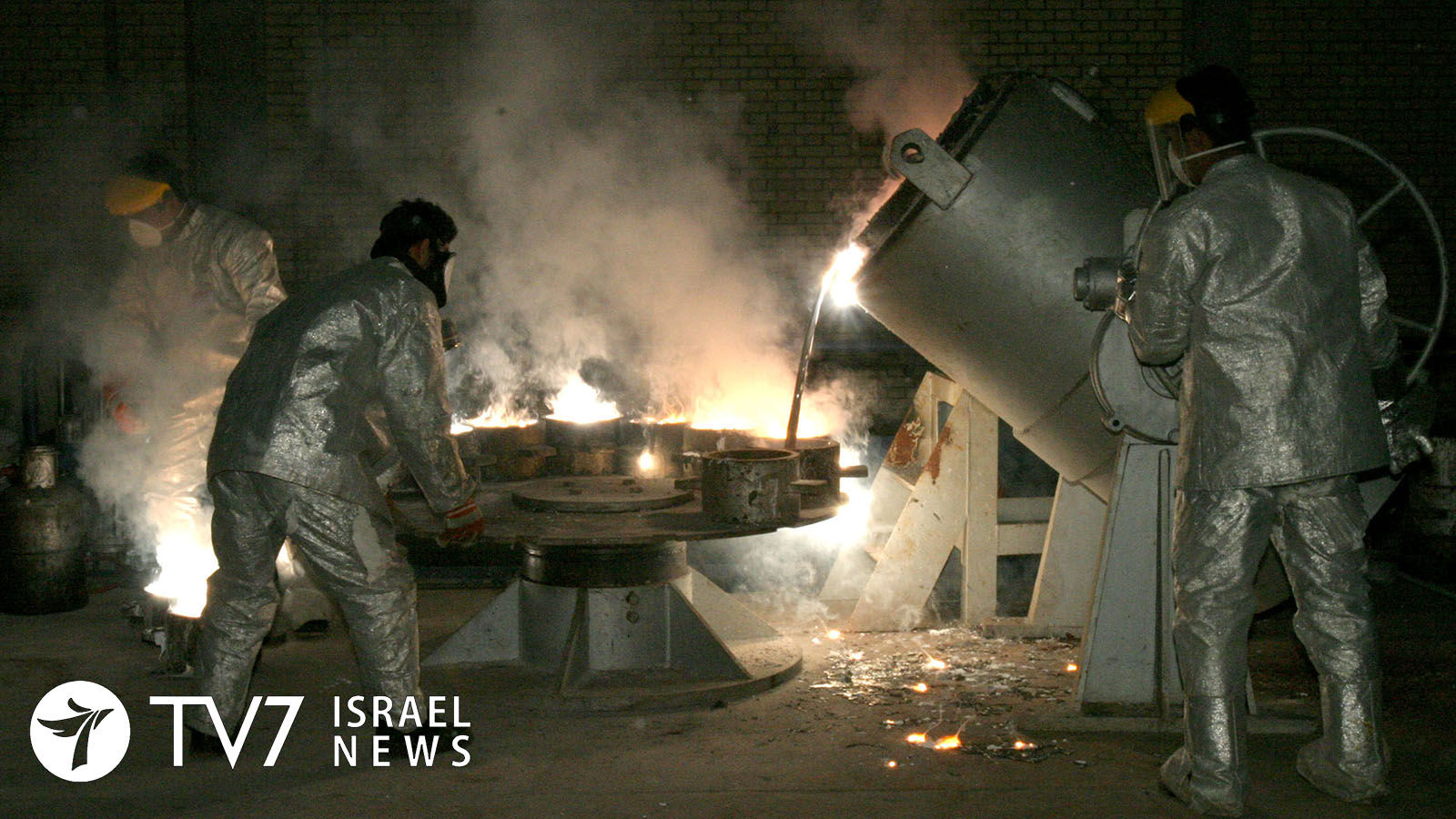The Islamic Republic is now feeding uranium enriched to up to 20% into limited numbers of extra centrifuges at its Pilot Fuel Enrichment Plant (PFEP) at Natanz, where it is already enriching to 60%, says the International Atomic Energy Agency (IAEA).
By Erin Viner
In its latest report, the United Nations watchdog organization said that Tehran’s is not stockpiling the product, although it is thought to be engaging in the activity to refine knowledge of the enrichment process, which is condemned by the West as an irreversible danger.
“On 25 October 2021, the Agency verified that Iran began feeding (uranium hexafluoride gas) enriched up to 20% U-235 into a single IR-6 centrifuge in R&D line 2 at PFEP and that the resulting product and tails streams were being re-combined,” said the IAEA report seen by Reuters, meaning that after separating the enriched product it was mixed with the centrifuge’s waste and not collected.
The IAEA document vowed that it will “increase the frequency and intensity of its safeguards activities” at the above-ground Natanz facility.
As of around 90% uranium is considered weapons-grade.
The Ayatollah regime has yet to announce a date to resume discussions in Vienna about reviving the 2015 Joint Comprehensive Plan of Action (JCPOA) nuclear pact under which it curbed nuclear development in exchange for the lifting of sanctions by the United States, European Union and United Nations. When then-US President Donald Trump abandoned the deal in 2018 and reimposed harsh punitive economic measures after accusing the Islamic Republic of covertly violating atomic limits, Iran responded by accelerating its atomic program.
Iranian Deputy Foreign Minister Bagheri Kani, is slated to meet today with the European Union’s Political Director Enrique Mora, marking the 2nd such encounter in Brussels between Iran’s Chief nuclear negotiator and the Vienna Talks coordinator this month.
While US State Department Spokesman Ned Price said Washington is “very supportive of the EU’s engagement with Iran in that capacity, he stressed that Tehran must resume compliance with the 2015 nuclear deal.
“What we believe, what our European allies believe, what our other P5+1 partners – in this case Russia and the PRC – believe is that the JCPOA, a mutual return to it, continues to be the best and the most effective means to ensure that once again Iran is subject to permanent and verifiable limits on its nuclear program and can never – can never – acquire a nuclear weapon,“ he said.
The State Department Spokesman also emphasized that if Iran wishes to address sanctions relief and other related issues, it must “engage in the Vienna format” with the US “at least in the indirect format that we had during the first six rounds of negotiations.”
In related developments, Iranian Supreme National Security Council Secretary Ali Shamkhani published a statement on Twitter advising Israel that it will need billions of dollars to recover a “devastating” and “shocking to behold” response if Jerusalem dares to strike nuclear infrastructure in the Islamic Republic.
Iran’s Supreme Leader Ayatollah Ali Khamenei frequently insists that the State of Israel must be annihilated.
The threat comes in the wake of repeated warnings from Israeli leaders, including the allocation of $1.5 billion dollars for such a potential strike, to ensure Iran will never develop atomic bombs.
Speaking during the most advanced and largescale international Blue Flag exercise hosted by the Israeli Air Force, Lt. Col. Amnon Shefler underscored that “the IDF continues to prepare for any kind of threat” posed by Iran, ranging from nuclear bombs to its entrenchment efforts throughout the region, “whether it be Yemen, whether it be in the Palestinian arena, especially with the Palestinian Islamic Jihad, or mostly with Hezbollah in Lebanon where they continuously spend more money and more knowledge on building that force aimed at Israel.”
The biennial Blue Flag drill has become a key pillar in preparing the Israeli Air Force for any future scenario, in cooperation with international partners and allies of the Jewish State.
Meanwhile, a US military official has confirmed to TV7 that investigation into last week’s UAV/rocket strike on an American military outpost in the Al-Tanf region of Syria confirmed the attack was directed by Iran.
While the source initially told TV7 on condition of anonymity that while “the method by which the attack was executed is near identical to those perpetrated against bases housing US servicemembers in Iraq by Iran-backed militias,” he held off on direct attribution “until after a thorough investigation provides clear evidence of those responsible.” Following statements by Pentagon Press Secretary John Kirby and other US officials, TV7’s source stated there is “tangible proof” linking Iran to the attack.
